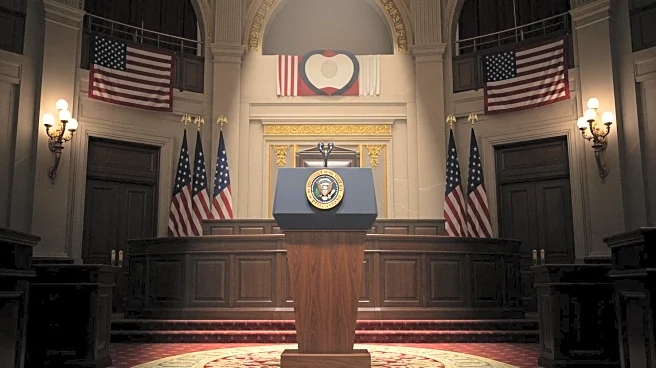What's Happening?
President Trump arrived in Israel for a brief visit coinciding with the return of Israeli hostages from Gaza. During his visit, he addressed the Knesset, receiving a standing ovation and signing the guestbook with a message of hope. Trump expressed optimism about Hamas disarming and declared the war over. He held meetings with Prime Minister Netanyahu and other officials, discussing peace efforts and the upcoming summit in Egypt. The visit included interactions with families of the hostages, although plans to meet the hostages themselves were canceled due to health concerns.
Why It's Important?
Trump's visit marks a significant diplomatic moment, highlighting U.S. involvement in Middle East peace efforts. The return of hostages and Trump's declaration of the war's end could signal a shift towards stability in the region. This visit underscores the U.S.'s role in facilitating dialogue and peace agreements, potentially impacting future U.S. foreign policy and relations with Middle Eastern countries. Stakeholders in the region, including Israel and Egypt, may see changes in diplomatic dynamics and security arrangements.
What's Next?
Following his visit to Israel, Trump is set to attend a peace summit in Egypt, where discussions on Gaza's future will take place. The summit aims to solidify agreements to end the conflict, with Arab and European leaders participating. Israel's exclusion from the summit raises questions about its future involvement in regional peace processes. The outcomes of these discussions could influence future diplomatic strategies and regional alliances.
Beyond the Headlines
Trump's visit and the peace summit may have long-term implications for U.S. influence in the Middle East. The focus on peace and disarmament could lead to shifts in military and economic policies in the region. Ethical considerations regarding the treatment of hostages and the humanitarian impact of the conflict may also come to the forefront, influencing international human rights discussions.








